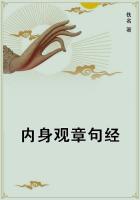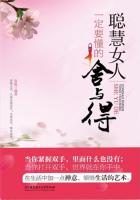He was a banker and broker.
The jury looked at him, and believed all except this matter of the sixty-thousand-dollar check. When it came to that he explained it all plausibly enough. When he had gone to see Stener those several last days, he had not fancied that he was really going to fail. He had asked Stener for some money, it is true--not so very much, all things considered--one hundred and fifty thousand dollars; but, as Stener should have testified, he (Cowperwood) was not disturbed in his manner. Stener had merely been one resource of his. He was satisfied at that time that he had many others. He had not used the forceful language or made the urgent appeal which Stener said he had, although he had pointed out to Stener that it was a mistake to become panic-stricken, also to withhold further credit. It was true that Stener was his easiest, his quickest resource, but not his only one. He thought, as a matter of fact, that his credit would be greatly extended by his principal money friends if necessary, and that he would have ample time to patch up his affairs and keep things going until the storm should blow over. He had told Stener of his extended purchase of city loan to stay the market on the first day of the panic, and of the fact that sixty thousand dollars was due him. Stener had made no objection. It was just possible that he was too mentally disturbed at the time to pay close attention. After that, to his, Cowperwood's, surprise, unexpected pressure on great financial houses from unexpected directions had caused them to be not willingly but unfortunately severe with him. This pressure, coming collectively the next day, had compelled him to close his doors, though he had not really expected to up to the last moment. His call for the sixty-thousand-dollar check at the time had been purely fortuitous.
He needed the money, of course, but it was due him, and his clerks were all very busy. He merely asked for and took it personally to save time. Stener knew if it had been refused him he would have brought suit. The matter of depositing city loan certificates in the sinking-fund, when purchased for the city, was something to which he never gave any personal attention whatsoever. His bookkeeper, Mr. Stapley, attended to all that. He did not know, as a matter of fact, that they had not been deposited. (This was a barefaced lie. He did know.) As for the check being turned over to the Girard National Bank, that was fortuitous. It might just as well have been turned over to some other bank if the conditions had been different.
Thus on and on he went, answering all of Steger's and Shannon's searching questions with the most engaging frankness, and you could have sworn from the solemnity with which he took it all--the serious business attention--that he was the soul of so-called commercial honor. And to say truly, he did believe in the justice as well as the necessity and the importance of all that he had done and now described. He wanted the jury to see it as he saw it--put itself in his place and sympathize with him.
He was through finally, and the effect on the jury of his testimony and his personality was peculiar. Philip Moultrie, juror No. 1, decided that Cowperwood was lying. He could not see how it was possible that he could not know the day before that he was going to fail. He must have known, he thought. Anyhow, the whole series of transactions between him and Stener seemed deserving of some punishment, and all during this testimony he was thinking how, when he got in the jury-room, he would vote guilty. He even thought of some of the arguments he would use to convince the others that Cowperwood was guilty. Juror No. 2, on the contrary, Simon Glassberg, a clothier, thought he understood how it all came about, and decided to vote for acquittal. He did not think Cowperwood was innocent, but he did not think he deserved to be punished.
Juror No. 3, Fletcher Norton, an architect, thought Cowperwood was guilty, but at the same time that he was too talented to be sent to prison. Juror No. 4, Charles Hillegan, an Irishman, a contractor, and a somewhat religious-minded person, thought Cowperwood was guilty and ought to be punished. Juror No. 5, Philip Lukash, a coal merchant, thought he was guilty. Juror No. 6, Benjamin Fraser, a mining expert, thought he was probably guilty, but he could not be sure. Uncertain what he would do, juror No. 7, J. J. Bridges, a broker in Third Street, small, practical, narrow, thought Cowperwood was shrewd and guilty and deserved to be punished. He would vote for his punishment. Juror No. 8, Guy E. Tripp, general manager of a small steamboat company, was uncertain. Juror No.
9, Joseph Tisdale, a retired glue manufacturer, thought Cowperwood was probably guilty as charged, but to Tisdale it was no crime.
Cowperwood was entitled to do as he had done under the circumstances.
Tisdale would vote for his acquittal. Juror No. 10, Richard Marsh, a young florist, was for Cowperwood in a sentimental way. He had, as a matter of fact, no real convictions. Juror No. 11, Richard Webber, a grocer, small financially, but heavy physically, was for Cowperwood's conviction. He thought him guilty. Juror No. 12, Washington B. Thomas, a wholesale flour merchant, thought Cowperwood was guilty, but believed in a recommendation to mercy after pronouncing him so. Men ought to be reformed, was his slogan.
So they stood, and so Cowperwood left them, wondering whether any of his testimony had had a favorable effect.















